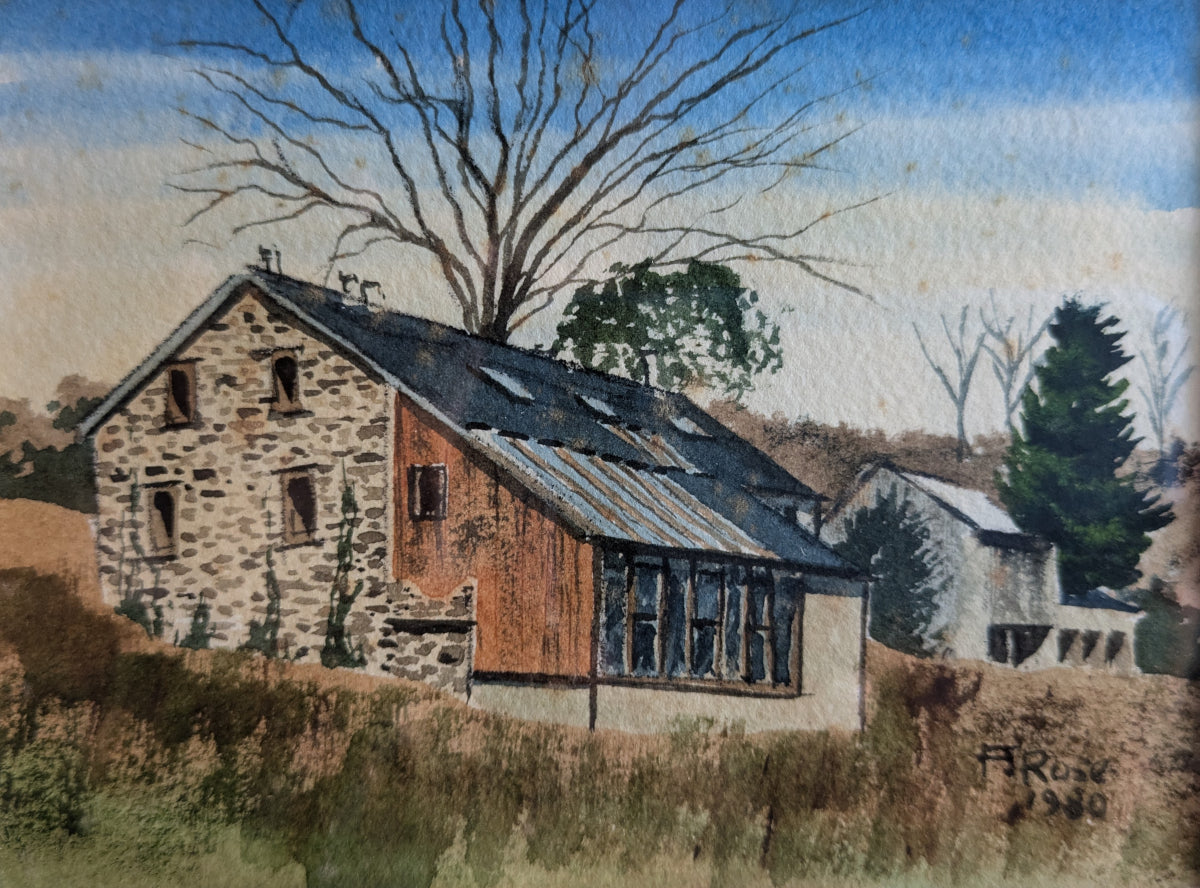I have a vivid recollection from childhood. I lay beside a rhombus of sunlight on the living room floor of the house in which I grew up. The scratchy wool carpet, an undyed, dirty gray, had a tight nap, and it emitted a faint animal scent. Because the windows passed through thick stone walls their sills were deep enough to curl up on for a good, long read. But, as I said, I was on the carpet, and I wasn’t reading.
I was being bored.
In that living room a silent piano sat in one corner and a silent record player in another. One wall had floor to ceiling built-in bookshelves, full of good books I’d already read. But these didn’t appeal to me, and neither did going outside, or getting crayons and paper, or even finding a sibling to either play with or bother. It was a peculiar lassitude, absurd yet strangely compelling.
When I think of that boredom, a state particular to childhood, the memory that shimmers in my mind is at once definite and ephemeral. I recall the feeling as something like an itch located towards the back of my head, but an itch that was not unendurable. I didn’t want to be bored, but I also didn’t want to not be bored, at least not enough to do something else.
In adulthood I rarely approach even an approximation of this state, and I don’t think I ever achieve it in the form that regularly settled upon me in childhood. There’s always something I feel I should do, and I never seem to find myself inexplicably lying on the floor. Writing consistently raises an echo of that old itchy feeling, in that it’s often uncomfortable or even unpleasant, while being simultaneously compelling. But writing has a definite end in view, a purpose. The purest form of boredom does not. The choice I recall making with my cheek pressed to that livingroom carpet was the choice to do nothing — boring nothing! — instead of anything else.
I will not presume that contemporary children don’t have a similar experience (I’m going to do my best not to get nostalgic about boredom of all things) but I nevertheless think it must be less universal and less frequent than it was, entirely because phones and tablets have provided a far more compelling alternative than pianos or books or finding a sibling to annoy.
My kids and I enjoy the podcast Dear Hank and John, in which the remarkably charming Green brothers answer listener questions and also discuss the latest news from the planet Mars and the mid-tier British soccer team AFC Wimbledon. On a recent episode John mentioned looking up the entry for boredom on Wikipedia, which begins “Boredom is…” He argued it instead should be “Boredom was…” since our devices have consigned it to the past. (The Wikipedia article actually begins, “In conventional usage, boredom, ennui, or tedium is…” but that would have been a clunkier joke.)
I think this is a bit of an overstatement. While it’s true that screens are exquisitely engineered to dissolve the first insightful, uneasy whisper of a mind that finds itself at complete and unexpected repose in a numbingly dynamic wash of algorithmically selected content, the habitual recourse to such stimulation actually makes the boredom of a necessary task, like washing dishes or shopping for groceries all the more vexing. The urge to check the phone for something more stimulating than reality between the silverware and the plates or in the checkout line becomes almost irresistible.
But I do think it’s true that the untainted, crystalline boredom, the boredom of voluntarily chosen, mildly unpleasant inactivity, is endangered, if not extinct. Sure, there’s meditation, or a slow day behind the counter of a service job, or a long drive in a car that adamantly refuses to connect to your phone, but like my writing these are all boredoms attenuated by purpose, whether that’s mindfulness or earning a paycheck. The Platonic ideal of truly pointless boredom has become as elusive as a Snow Leopard.
I tend to think this is bad, that there’s some lesson or wisdom to be found in simply doing nothing, but I also tend to think unfettered electronic use has an overwhelmingly negative effect on life, so I am biased. I cannot point to what being deeply bored as a child taught me. Perhaps because I can recall it so clearly I have charged it with unwarranted significance. Perhaps. But when my son, rolling around on the couch, plaintively asks, “Do you have any idea of what I can do?” I allow myself a smile.


1 comment
I just finished 70 slides on a lecture I’m to deliver tomorrow on Modern Project Management, which includes concepts of Taylorism (Mr Schmidt should have worker’s comp for that 47 tons of pig iron he delivered under that experiment, sir) to a segment on the post-industrial revolution where a Jeanette Winterson states “I didn’t want to be in the teeming mass of the working class…I didn’t want to live and die in the same place with only a week at the seaside in between”, to a description of the creation of PERT analysis towards the assistance of the manufacture of the Polaris nuclear submarine. I’m not quite sure what to do now. It’s 2:30am and I’m tired and jazzed all at the same time, and my brain is fried. I don’t think I’m bored, I just don’t quite know what to do next. Is that the same thing? Luckily, I have email, and I have a dog. Good reading and thanks for this one. I’m happy to be a sole commenter on the old blog here…and while I’m at it, I’m going to recommend Man & Horse: The Long Ride Across America by John Egenes. Regards from the urban strife, farm friends…